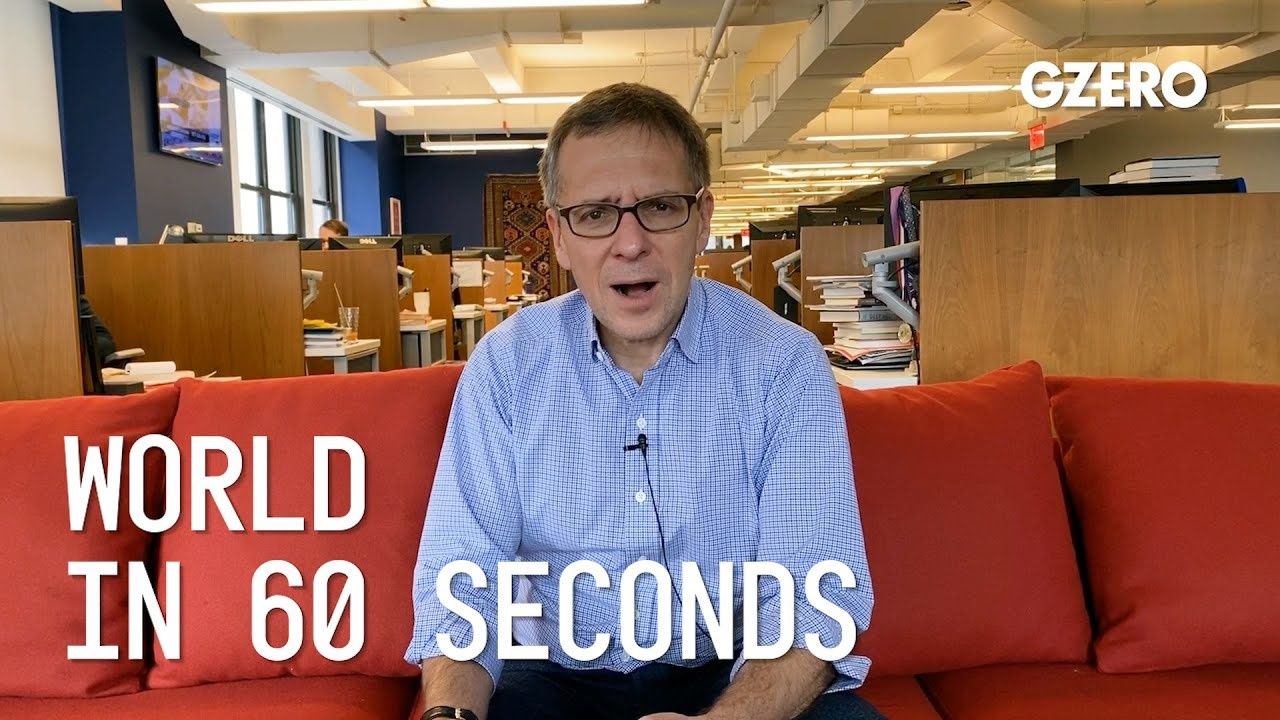
Ian Bremmer answers your most burning questions on the World In 60 Seconds!
How does the US-Iran escalation change the fight against ISIS and terrorism?
Well, it makes it a little harder. I mean, if we're focusing on Iran, which is largely a geopolitical menace to the United States, it's them and it's their proxy fighters inside different states, whether it's the Houthis in Yemen or it's Hamas in Gaza. But when we think about terrorism, it's the Sunni radical Islam forces that are mostly an issue, al-Qaeda and ISIS. And the US is spending less time focusing on that. And indeed, they suspended their fight just now against ISIS in Iraq. Long term, that's going to bite us. Though, it bites the region and the Europeans a lot more given the numbers and the geographic contiguity.
Will the Senate subpoena John Bolton to testify in the impeachment trial?
They may, though ultimately, it's up to McConnell. And I don't yet see a significant number of Republican senators saying that they want that to happen. Mitt Romney has said he'd be open to it, but he's not saying he's going to try to force it. We'll see. But I also will say the fact that Bolton is now saying, right after this Iranian strike, this "decapitation" strike that he's very pleased about, that he's prepared to testify, sounds to me like he's not going to be as problematic for Trump as a lot of people believe. And let's keep in mind that a lot of the stuff that he was aware of and privy to is stuff that we've already heard about through the initial testimony. So, it's going to be exciting for MSNBC and CNN, but I don't actually think it's going to move any votes in terms of impeachment or sway popular opinion in the United States.
What's happening with Venezuela's National Assembly?
Well, Guaido, the nominal president who is recognized right now by the United States and many other countries, doesn't have an assembly home. He had to basically get votes outside as Maduro shut the doors and said, you're not - you're no longer able to govern here, we have a parallel assembly. Maduro is going to work very hard to have new elections and split the opposition to get people to run and vote in his process. The lack of support for the Venezuelan opposition inside the country and the fact that the US and other countries aren't likely to do very much about that means that Maduro isn't going anywhere. Very aligned with what we've said in our Top Risks, where Venezuela is a herring unless you happen to be Venezuelan.